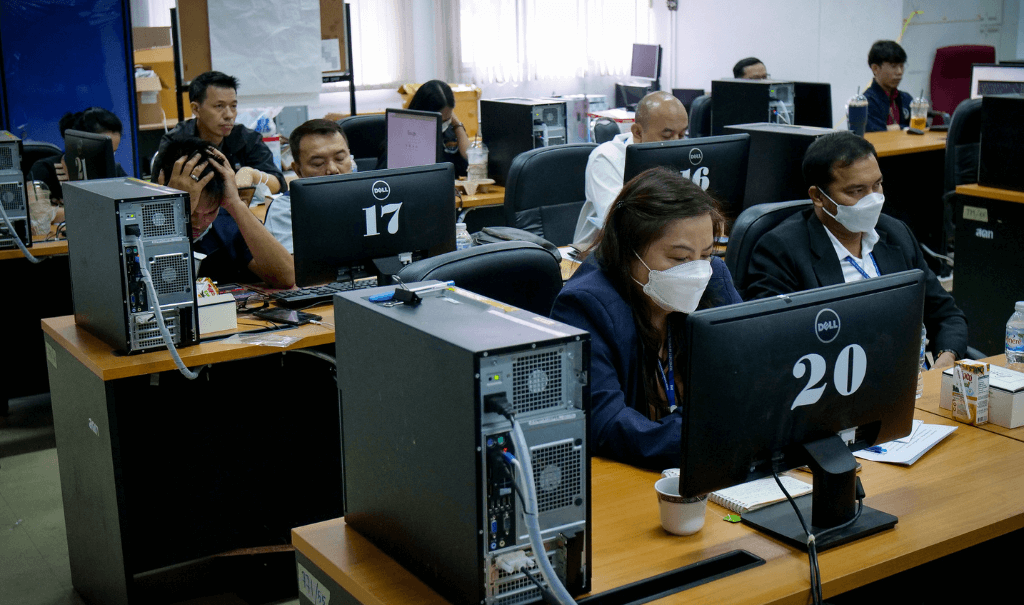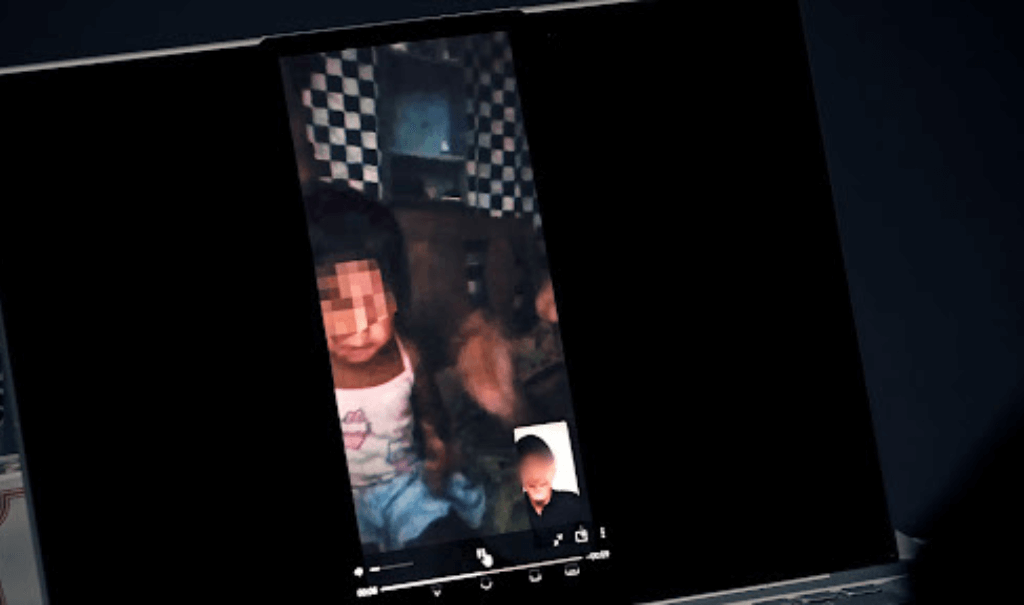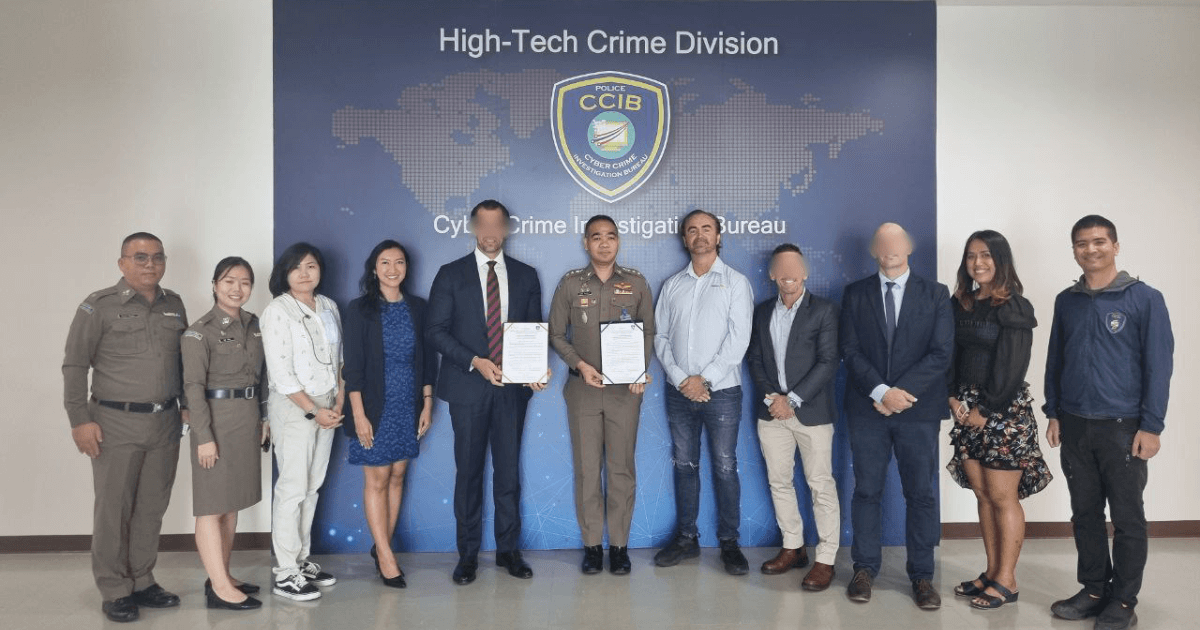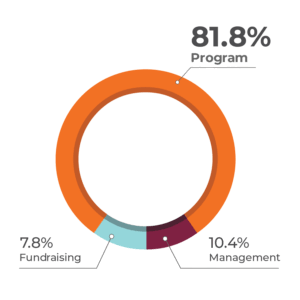After a long wait, we are excited to announce our powerful new tool in the fight against the online sexual exploitation of children (OSEC)!
In past posts, we’ve defined OSEC and talked about why cases are exploding right now. Children are exceptionally susceptible to online exploitation, and criminals have taken advantage. In fact, a recent report from IWF found that online internet child sexual exploitation doubled from 2020 to 2022.
Because reporting is notoriously low and traffickers and offenders often live in different countries than their victims, prosecution is long and laborious. In the meantime, criminals, hidden behind layers of security and utilizing dozens of different online profiles, continue to operate unhindered.
That’s why we’re glad to have a new secret weapon in our arsenal.
In 2022, a top security company donated over $5 million worth of cutting-edge security materials to Destiny Rescue to save OSEC victims in Thailand and bring their abusers to justice. If the internet is a vast labyrinth where traffickers pursue, exploit, and conceal their victims, we’ve just added bloodhounds to the team.
The Program
The new program, dubbed Scientia, is much more than just a top-tier software suit. With 15 dedicated personnel, several of whom are on the ground in Thailand, it’s a full-service investigative system unlike any other, and it’s pulling back the curtain on traffickers.

The Destiny Rescue Thailand team recently held a training with law enforcement agency officials
While police can use the program with a warrant for more in-depth investigations, the majority of Scientia’s work is accomplished using only publicly-accessible, legal—and, most importantly—court-admissible means. While we can’t get into the minutiae of how the system works without compromising its capabilities, let’s look at a few aspects that set it apart from other programs.
The following information can get a little bit technical, so here’s an oversimplified snippet for the technologically impaired too intimidated to proceed further:
The new system finds traffickers and victims alike with incredible efficiency, building a body of evidence to take down perpetrators while helping police rescue kids faster than ever, all without violating personal privacy laws.
Unparalleled investigative power
Our new system cuts months off of investigations.
If police only pursued reported cases of OSEC, they’d only investigate a tiny fraction of abuse going on at any given time. For detectives, identifying online child abuse is like attempting to investigate a crime that no one reported. You don’t know who the victim is, who the perpetrator is or where or when it was committed.

Child online exploitation often begins with the use of a smartphone
That’s one big reason Scientia is such a game-changer.
One particular piece of the software quickly sorts through hundreds of thousands of internet images more rapidly than a human ever could, searching for child sexual abuse material (CSAM). It compares these images to identifiers supplied by the National Center for Missing and Exploited Children (NCMEC) to single out images that might show instances of child exploitation.
What’s even more impressive is that this tool has the capability to scan peer-to-peer (P2P) networks. For the unfamiliar, P2P networks don’t use regular internet channels but instead set up networks between individual computers or through private servers. Offenders share videos and pictures of child abuse through P2P networks to hide their criminal activities. Thanks to this new software, perpetrators are quickly losing what they once thought were “safe” places to share their despicable material.
Once it has tracked down suspicious images, the system works to identify the person behind the profile. It produces the offender’s IP address, which is essentially the unique code for a personal computer. With this code, officers have everything they need, including a physical address, to start investigating the person behind the material.
Hunting down criminals
But traditional computers and laptops aren’t the only weapons OSEC traffickers use: smartphones have become a staple of the despicable business—one that criminals have used to devastating effect. Some offenders may have a dozen smartphones with different profiles associated with each one. Each of those smartphones, however, has an IP address, just like any computer.

Young children being exploited via livestream
Once officers have a phone’s IP address, the software can begin tracking it through ID pings off of other devices. This isn’t the same as private real-time location sharing. Instead, police can see when the perpetrator’s phone connects to certain public networks. Because this information is publicly accessible, police can build a robust case composed of admissible evidence.
Using this method, police can paint a picture of the perpetrators’ routine habits and travel patterns. Outside providing vital data for a legal case, keeping an eye on their movements can yield pertinent practical information, like where the traffickers live, where victims are located and the best place and time to make an arrest.
This new system also has the ability to root out pertinent information from any devices that police recover—which is particularly important because these phones or laptops may reveal traffickers’ contacts, victim identities, P2P networks, images and other incriminating evidence. This capability not only builds the body of admissible evidence but also helps police locate more perpetrators and victims.
If the police request it, Scientia’s team members on the ground can also set up physical surveillance on targets from public locations, tightening the net even further.
Trauma-informed
Despite all these powerful tools, we never lose sight of our mission: rescuing the children. The Scientia program empowers police and social workers with training and development from an internationally-licensed forensic interviewer and child psychologist to ensure the interview process for rescued kids does not cause additional trauma. Once all the data-gathering and case-building are complete, our end goal is always the wellbeing of the survivors.
Trauma-informed interviewers are trained to converse gently with the child in a safe environment, letting them direct the flow of the discussion at a comfortable pace. As the conversation progresses, interviewers expertly ask questions that lead to incriminating evidence against the offender and may even lead to more rescues.
Conclusion
The internet is quickly becoming the new brothel. Hidden behind layers of protection and perceived anonymity, predators feel freer than ever to pursue their most depraved tendencies. And precious children are suffering as a result.
We’re playing a part in changing that.

We’re grateful for the willingness and dedication of governments like Thailand’s who are partnering with us to take intentional action to help fight against this exponentially-growing crime
Thanks to Scientia, police in Thailand can locate and rescue online victims like never before. And because the program builds such a strong body of evidence, traffickers and offenders can be prosecuted to the fullest extent of the law, ensuring that they can’t harm children anymore.
To join the fight against OSEC and the exploitation of children worldwide, follow the link below.
Donate with confidence
Over the last three years, 81.8% of every dollar we spent was used for programs that benefit the children we defend.
Destiny Rescue is recognized by Guidestar, Charity Navigator and the Better Business Bureau for our commitment to transparency, accountability and financial integrity.



 Australia
Australia New Zealand
New Zealand
